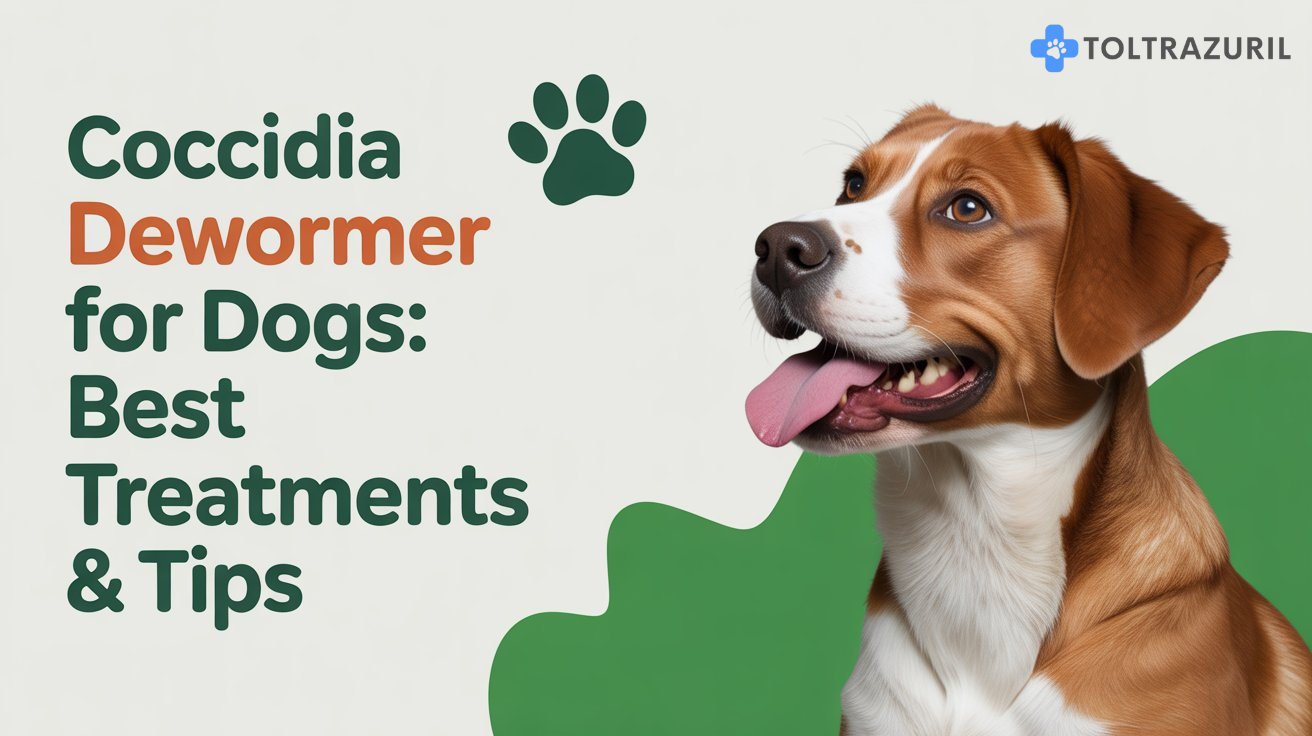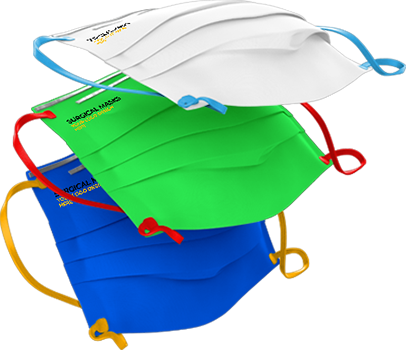Coccidia Dewormer for Dogs: Best Treatments & Tips
When it comes to finding the right coccidia dewormer for dogs, many pet owners may assume antibiotics are the solution. However, antibiotics are not effective in treating coccidia infections because they target bacterial infections, not the single-celled organism parasites that cause coccidia. Coccidia is a parasitic infection, and treating it requires specific medications designed to target protozoans. In this article, we’ll explore why antibiotics aren’t effective for coccidia, the importance of antiprotozoal medications like Toltrazuril, and the correct approach for treating coccidia in your dog.
❌ Why Antibiotics Are Ineffective for Treating Coccidia Infections in Dogs
Coccidia is a single-celled organism and a protozoan parasite, not a bacterial infection. Antibiotics are designed to fight bacteria, and since they have no effect on microscopic parasites like coccidial parasites, they won’t work for coccidia. In fact, using antibiotics to treat coccidia could lead to side effects such as disturbing your dog’s gut microbiome, which plays an essential role in the immune system. A dog suffering from gastrointestinal infections caused by coccidia will need supportive treatments and medication designed specifically to target the intestinal lining cells. Severe infections may require a prolonged treatment plan to ensure the infection is fully cleared. To treat coccidia properly, you’ll need to use antiprotozoal medications, which are specifically designed to target protozoan parasites like those that cause coccidia.
💊 The Importance of Antiprotozoal Medications Like Toltrazuril for Coccidia Treatment
When your dog is infected with coccidia, antiprotozoal medications such as Toltrazuril are the go-to treatment. These medications work by targeting the single-celled organisms, stopping them from reproducing and spreading. Toltrazuril has become a commonly used treatment due to its high effectiveness in eliminating coccidia. It’s essential to consult with a veterinarian to determine the right medication and dosage for your dog’s specific condition. For infected dogs, a fecal test may be necessary to confirm the infection and monitor progress. In some cases, a stool sample is required to assess the severity of the infection. If the infection is severe, prolonged treatment with liquid suspension medications may be needed to completely eliminate the infection.
🐾💦 Best Antibiotic for Coccidia in Urine Dog
Many pet owners might search for an antibiotic for coccidia in their dog’s urine, but antibiotics are not an effective solution. Let’s look at why antibiotics aren’t used for coccidia in urine and when they may still be necessary.
🦠 Understanding Why Antibiotics Aren’t Used for Coccidia in Urine
Coccidia primarily infects the intestinal tract, not the urinary system. Since antibiotics are designed to treat bacterial infections, they do not target the coccidial oocysts responsible for coccidia. If your dog’s fecal sample or stool sample shows signs of intestinal tract infection, it could be the result of an untreated intestinal lining cells infection. Clinical signs of coccidia include watery diarrhea and abdominal distress. While antibiotics may not treat coccidia itself, they could be helpful if a bacterial infection is present at the same time. Always remember that a fecal test can provide insight into the specific type of infection your dog is dealing with.
🐕 When Antibiotics Are Needed for Concurrent Bacterial Infections in Dogs
While antibiotics do not treat coccidia directly, they may be needed if your dog has a secondary bacterial infection in addition to the coccidia. Coccidia can cause intestinal inflammation, which might create an environment where bacteria can invade. In such cases, your vet may prescribe a sulfa-type antibiotic to treat the bacterial infection while still using antiprotozoal medications like Toltrazuril for the coccidia.
💊 Effective Medications for Coccidia Treatment in Dogs
Coccidia infections require treatment that specifically targets the parasites. In this section, we will discuss the most effective medications for treating coccidia in dogs.
💉 The Role of Antiprotozoal Drugs in Treating Coccidia in Dogs
Antiprotozoal drugs, such as Toltrazuril and Sulfadimethoxine, are key in treating coccidia. These medications are formulated to specifically target and kill coccidial parasites. They prevent the parasite from reproducing and spreading, which ultimately clears the infection. Antiprotozoal drugs are the best way to address coccidia infections and should be administered under the guidance of your veterinarian to ensure safe and effective treatment. If the infection is serious, your vet might recommend prolonged treatment to completely eliminate the parasites from your dog’s system.
🧬 How Sulfadimethoxine and Toltrazuril Work to Target Coccidia Parasites
Sulfadimethoxine and Toltrazuril both play an essential role in treating coccidia infections. Sulfadimethoxine inhibits the growth of coccidia parasites, while Toltrazuril prevents them from reproducing. Together, these medications effectively target and eliminate coccidia from your dog’s system. Depending on your dog’s condition, your vet will prescribe the appropriate drug and dosage for the best results. If your dog is suffering from intestinal tract infections caused by coccidial oocysts, your vet may also recommend antigen tests to confirm the presence of the parasite.
❓🐶 Common Misconceptions About Using Antibiotics for Coccidia in Dogs
There are several misconceptions about using antibiotics for coccidia, so let’s address some of the most common ones.
🦠 Why Antibiotics Won’t Cure Coccidia: A Protozoan Parasite vs. Bacterial Infection
Coccidia is a protozoan parasite, and antibiotics are designed to fight bacterial infections, not microscopic parasites. This is why antibiotics are ineffective in treating coccidia. Misunderstanding this can lead to delays in providing the proper treatment, which can result in prolonged illness for your dog. Always seek the correct antiprotozoal treatment for coccidia, and avoid relying on antibiotics. If left untreated, the sign of coccidiosis may worsen, leading to more severe infections that require more intensive care.
✅ What You Should Know About Treating Coccidia Correctly
To properly treat coccidia, focus on antiprotozoal medications that are specifically designed to target and eliminate the parasite. Toltrazuril, Sulfadimethoxine, and other similar medications are essential in clearing coccidia infections. It’s important to monitor the fecal sample to ensure the infection is fully resolved. Regular fecal tests can help track the progress of treatment. If the infection is severe, supportive treatments such as hydration and proper nutrition can help boost your dog’s immune system while fighting off the parasites. Always consult your veterinarian for the right treatment plan and follow the prescribed regimen closely to help your dog recover fully. In some cases, environmental contamination can lead to reinfection, so it’s essential to clean your dog’s bedding and living areas thoroughly to prevent future outbreaks. Additionally, keeping your dog away from public water supplies that may be contaminated with coccidial oocysts can reduce the risk of reinfection.
FAQs About Coccidia Dewormer for Dogs
What is the best dewormer for coccidia in dogs?
The best treatment for coccidia in dogs is Toltrazuril or Sulfadimethoxine, which are both antiprotozoal medications specifically designed to target coccidia.
Can traditional dewormers treat coccidia in dogs?
No, traditional dewormers are not effective against coccidia because they target worms, not protozoan parasites.
How long does it take for coccidia dewormer to work in dogs?
Coccidia dewormers like Toltrazuril and Sulfadimethoxine generally show results within a few days to a week, depending on the severity of the infection.
Are there side effects of coccidia dewormers?
Some dogs may experience mild side effects such as nausea or diarrhea when using coccidia dewormers.
Where can I get coccidia dewormer for my dog?
You can obtain coccidia dewormer from Toltrazurilshop.net, ensuring you get the correct treatment and dosage for your dog.
References
- Coccidiosis in Dogs – VCA Animal Hospitals
- PetMD – Toltrazuril for Dogs and Cats
- Coccidia in Dogs: Symptoms, Causes, Diagnosis, Treatment | Wag!
Next Steps:
For more information on coccidia treatment options and the best care for your pet, visit our article on “Coccidia Treatment for Dogs: Best Options for Your Pet.“


